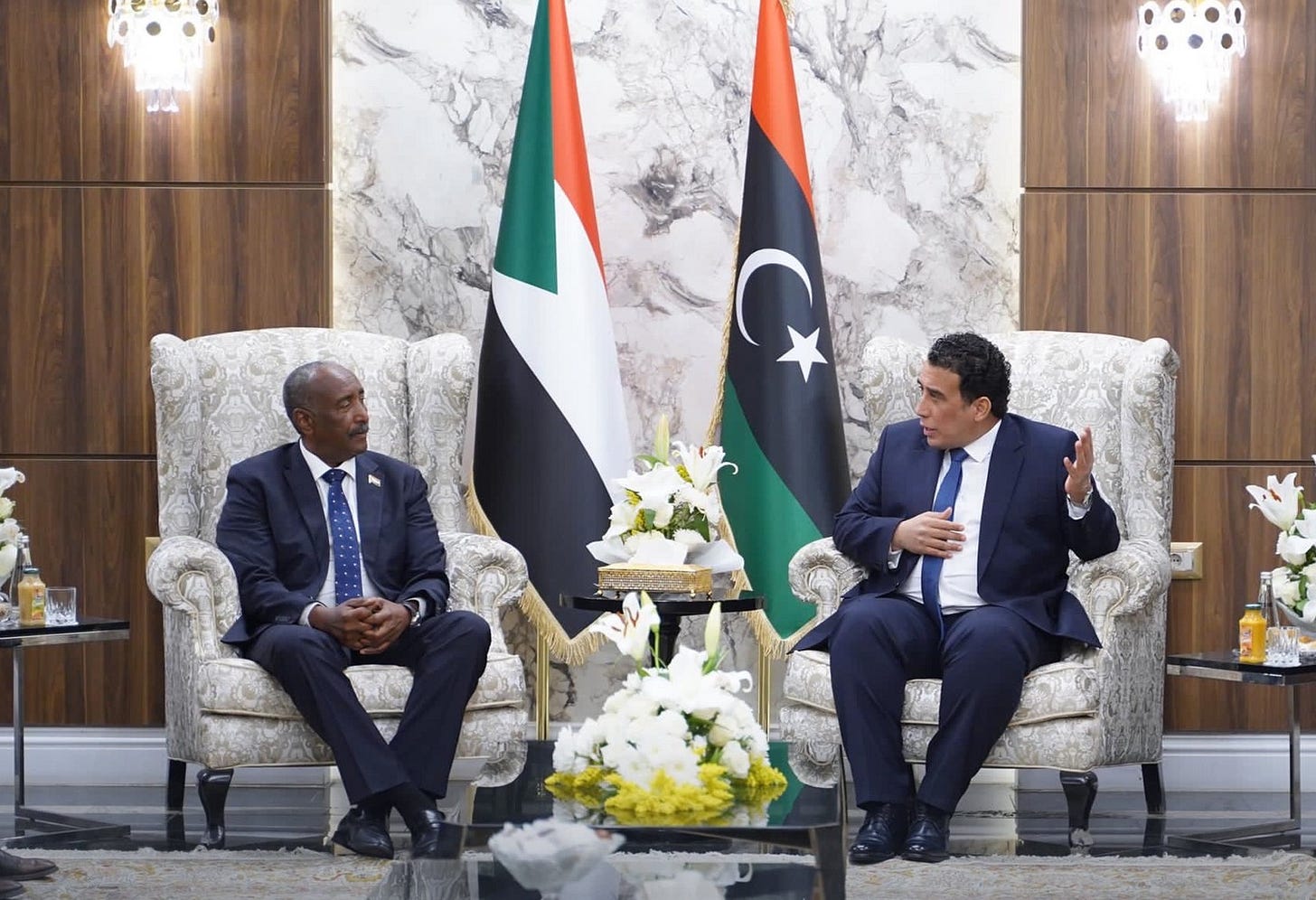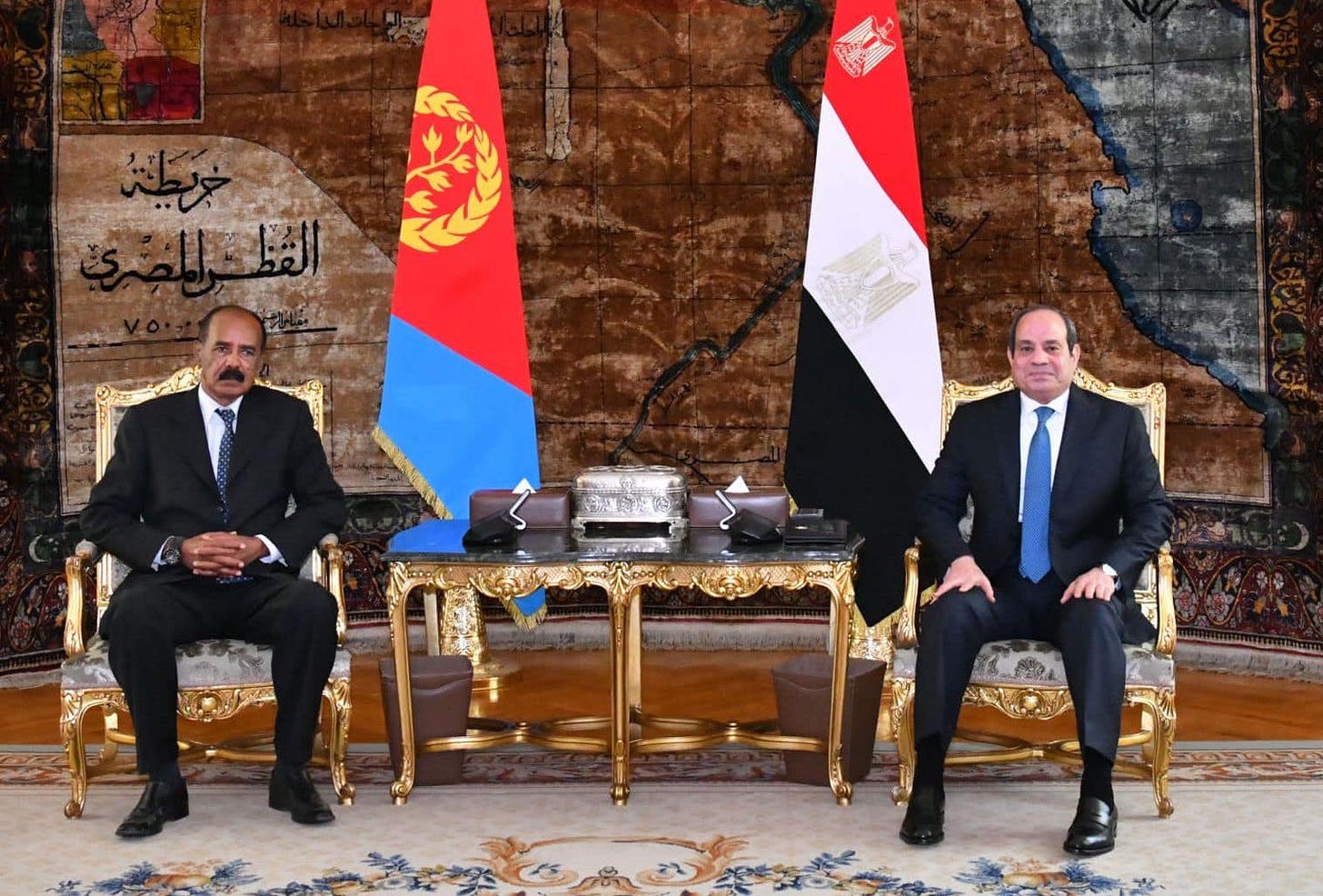Al-Burhan seeks Libyan help in Sudan war
Rival Libyan administrations have ties with different Sudanese belligerents
Sudan’s military ruler, Abdel Fattah Al-Burhan, traveled from Port Sudan to Libya today to ask for help in the fight against the Rapid Support Forces (RSF), the renegade paramilitary that has taken over large parts of the country.
Al-Burhan was accompanied by Foreign Minister Ali Sadiq and the Director of the General Intelligence Service Ahmed Ibrahim Mufaddal. He was received at the Tripoli airport by the Chairman of the Libyan Presidential Council, Mohamed al-Manfi.
Like Sudan, Libya is a divided country, ruled by the Turkish-backed Government of National Unity in the west, and the Russian-backed Libyan National Army in the east.
The eastern administration headed by General Khalifa Haftar shares a border with the RSF, and some Libyan National Army (LNA) commanders have close ties with the RSF and other Darfur armed groups. UN researchers, in a recently leaked report, identified Libya as a source of weapons for the RSF, as well as fuel and Land Cruisers.
“In these [smuggling] operations from Libya, RSF benefited from coordination with several LNA brigades based in southern Libya. These included Subul Al-Salam, a predominantly Zuwaya, Salafist brigade based in Kufra and controlling the border with Sudan, with whom some RSF forces were already cooperating for smuggling activities before the war.”
“According to various Libyan sources, Subul al-Salam was instrumental in facilitating RSF’s replenishment with fuel, cars, and ammunition. The 128 Brigade, which had a presence in southern localities such as Sebha and was the main Libyan partner of the Darfurian armed movements, was also involved.”
The same UN panel had noted in 2022, prior to the current Sudanese civil war, “Mercenary activities in Libya had been the major source of financing for most Darfurian movements, however, due to international pressure and diminished pay-out from Libyan counterparts, the signatory movements progressively returned to Darfur.”
That flow of fighters from Sudan into Libya and then from Libya back into Sudan has continued in 2023-2024, as a new civil war unfolded in Sudan.
Therefore, the ties between Libya’s LNA and the RSF were likely on the agenda of the meetings today between Sudan’s commander-in-chief and the Libyan President Mohamed al-Menfi and Prime Minister Abdulhamid Al-Dabaiba.
The Sudanese leader or his intelligence director may have also asked for direct military assistance in the form of weapons, ammunition, or advisors. Sudan’s military recently began receiving assistance form Iran, but it has few other allies.




At a joint press conference after the meeting, Al-Menfi said he rejects foreign interference in Sudan’s affairs, referring implicitly to the role of the United Arab Emirates in Sudan and comparing it to the Emirates’ previous support for the rival Libyan administration based in Tobruk, during the recent Libyan civil war.
He said, “We affirm our full support for the unity of brotherly Sudan, and we support His Excellency (Al-Burhan) for the efforts he is making for stability in Sudan.”
In turn, Al-Burhan appreciated “the positive positions of the State of Libya towards Sudan, calling for and supporting Sudan’s unity, national security and stability, and rejecting negative foreign interference in the two brotherly countries.”
The Libyan prime minister, Al-Dabaiba, did not appear at the press conference but met with Al-Burhan separately. According to the press office of the Sovereignty Council, the top body of Sudan’s military junta, the Sudanese leader “briefed him on the developments in Sudan in the light of the rebellion carried out by the Rapid Support militia against the state and the grave violations it committed against civilians,” including looting, occupying homes, and “practicing ethnic cleansing.”
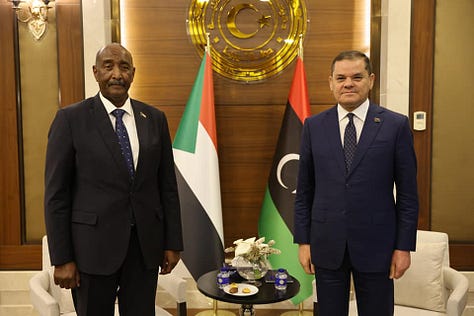
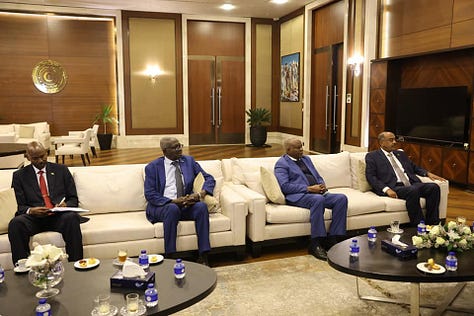
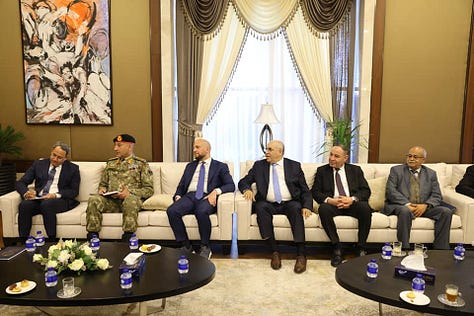

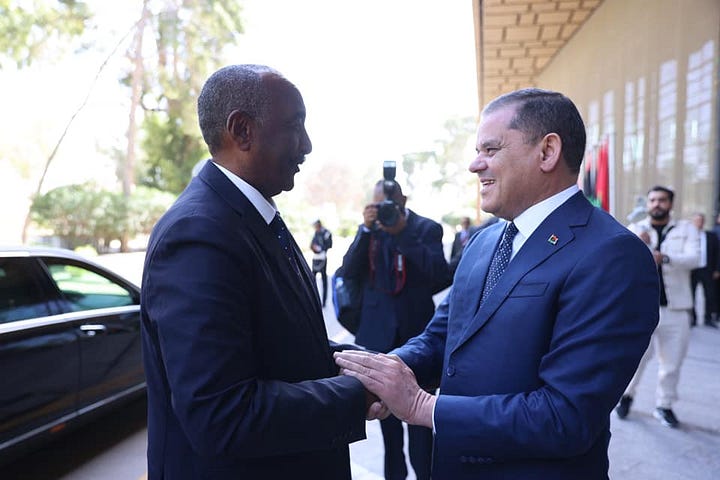
Libyan prime minister contacts the RSF
Al-Burhan’s visit comes two days after the leader of the Rapid Support Forces, Mohamed Hamdan Dagalo, said he received a phone call from the Libyan prime minister, claiming that he too had received an invitation to Libya.
Dagalo wrote on social media, “During our conversation, we discussed the current developments in Sudan and shared our vision for addressing the crisis from its historical roots and laying the groundwork for a new, just foundation for the country. I expressed my gratitude to Prime Minister al-Dabaiba for his invitation to visit Libya and assured him that we will accept it.”
Dagalo’s statement points to a potential Libyan role in brokering peace talks, or at least supporting ongoing efforts by other powers. Dagalo said he commented Al-Dabaiba “for his initiative and efforts to support stability and peace in Sudan.”
Historically, Libya’s former strongman, Muammar Gaddafi, played a role in several Sudanese conflicts, both by backing rebel groups and by hosting peace initiatives.
Eritrea and Egypt coordinate Sudan plans
Eritrean President Isaias Afwerki visited Egypt on Saturday, where he met with President Abdel Fattah Al-Sisi to discuss trade, Red Sea security, and the Sudan crisis. Presidential spokesperson Ahmed Fahmy stated,
“The situation in Sudan was also discussed. The two Presidents emphasized the importance of continued joint efforts between Egypt and Eritrea, within the framework of the path of neighboring countries. This shall aim to reach earnest solutions to the crisis, conducive to a ceasefire, putting an end to the humanitarian suffering the Sudanese people have been enduring and fulfilling their aspirations and hopes for achieving security, stability, and development.”
Both nations were visited by Sudan’s military ruler, Al-Burhan, when the latter made a foreign tour last year. Both historically have ambivalent relations with the Sudanese regime, though presently they favor it more than the RSF. An Egyptian ammunition ship has visited Port Sudan bringing “humanitarian aid,” and Eritrea is hosting training camps for Sudanese armed groups allied with the Sudanese army. Egypt historically also has ties with the Sudanese Air Force, training pilots and maintenance crew.
Of the two countries, Egypt is the more diplomatically active in trying to end the conflict. Egypt hosted a summit in July last year to address the crisis, and more recently Egypt’s intelligence service reportedly helped facilitate the recent Manama conference, which brought together the top RSF and SAF leaders for unofficial talks.
Sudanese army gains further in Omdurman
In recent military developments, the Sudanese army has exploited its recent breakthrough in Omdurman to advance further in eastern neighborhoods of the city, which is Sudan’s largest. RSF soldiers, who long besieged the central Engineers area, are now themselves surrounded in the neighborhoods of Abu Rof, Beit al-Mal, Al Mulazimin, and Al Mawrada.
A viral video from the conflict zone yesterday showed Sufi worshippers in Beit al-Mal, an area long controlled by the RSF, interrupted by the sounds of gunfire and cheering. The leader of the Qadiriyya Al-Mukashfiyya order, Sheikh Amin Omar, who was livestreaming the video at the time, said that these were sounds of the army taking control of the area. Sheikh Amin has remained active on social media throughout the war, which he consistently condemned, while also running a kitchen to give food to the needy.
In a follow-up video, the religious leader said that two civilians were shot and injured while exiting the mosque, after which a Sudanese army officer apologized to him for the incident, saying a soldier was surprised by the civilians’ presence . “The entire area now is under control of the army,” he added.
There are also reports that the Sudanese army has advanced on the radio and television complex in Omdurman. We will provide more details and analysis on the military events in Omdurman as the situation unfolds.
Meanwhile, in the capital Khartoum, seven civilians were killed Sunday morning in the Al-Nahda neighborhood, including three women and a child, due to the fall of five artillery shells, according to the Southern Belt Emergency Room. The area is controlled by the RSF and often shelled by the Sudanese army.

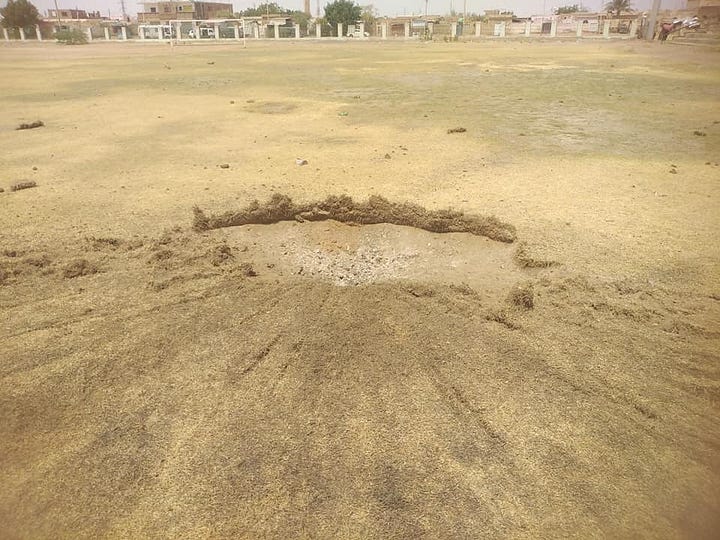
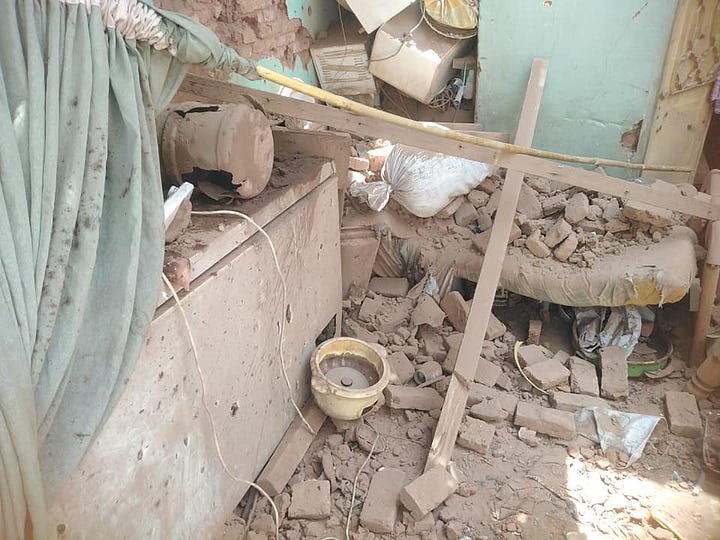
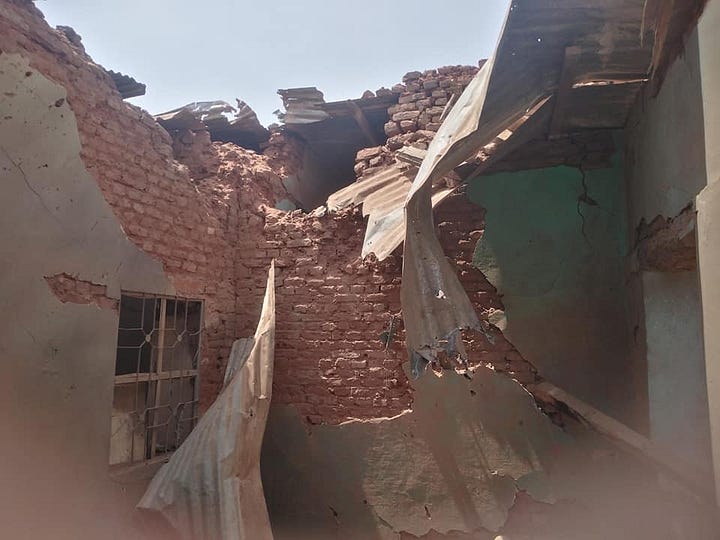
Cross-border aid flows stall
Humanitarian conditions continue to worsen in Sudan even as aid access gets more restricted. Sudan’s military government has ordered aid agencies not to carry out cross-border aid operations from Chad into Darfur, a region that is largely unreachable logistically from the Red Sea coast, due to military activity.
The Sudanese military doesn’t control Darfur or the Chad-Sudan border—RSF control that entire border and nearly of the Darfur region—but the United Nations and some aid agencies feel they need permission from the junta to operate there.
The United States’ foreign ministry issued a statement condemning the decision:
The United States is deeply concerned by the Sudanese Armed Forces’ (SAF) recent decision to prohibit cross border humanitarian assistance from Chad and reports that the SAF is obstructing assistance from reaching communities in areas controlled by the Rapid Support Forces (RSF). We are also concerned that the RSF are looting homes, markets, and humanitarian assistance warehouses in areas under their control, and that both sides are harassing humanitarian workers and hindering delivery of lifesaving aid. We call on both the SAF and RSF to immediately allow unhindered humanitarian assistance deliveries to all parts of Sudan.
We remind the SAF and RSF of their obligations under international humanitarian law, as well as their commitments in the Jeddah Declaration to protect civilians and facilitate humanitarian deliveries to meet the needs of civilians. The United States applauds the courageous efforts of humanitarian actors, including the Emergency Response Rooms and grassroots organizations throughout Sudan responding to the needs of their most vulnerable fellow citizens at great personal cost and risk.
In addition, the United States strongly condemns actions by the SAF and RSF, as well as some civilian officials, to constrain civic space, restrict access to internet and mobile phone networks, stoke interethnic conflict, and criminalize groups providing support for communities harmed by conflict. Hate speech, including vilification of individuals who call for stopping the fighting, has surged. We have seen the targeting of Resistance Committees, pro-peace activists, community leaders, humanitarian actors, medical personnel, journalists, and political party members. We unequivocally condemn these acts, as well as pervasive rape, torture, and other reprehensible violations against Sudanese civilians. Sudanese civilians must be free to organize themselves to establish a civilian government that truly represents the Sudanese people.
Become a supporter
Thank you for reading Sudan War Monitor. You can support our journalism by subscribing for $10/month, or by making a one-time donation. We’re so grateful to the many generous people who have backed this project so far.


